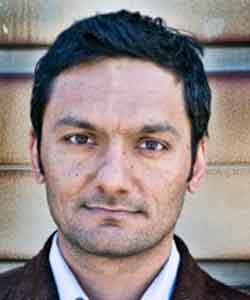Masi Noor
 Canterbury Christ Church University, United Kingdom
Canterbury Christ Church University, United Kingdom
www.canterbury.ac.uk/social-applied-sciences/applied-social-sciences/staff/Masi-Noor/
What does your research focus on?
I am a social psychologist and my work focuses on intergroup relations, including the dynamics of conflict, cooperation, and help between groups. For instance, why do conflicting groups sometimes engage in competition over their victimhood following violent conflicts? How do people of one group decide which, of many, needy groups to donate their money to following humanitarian disasters? I have also studied the role of intergroup relations between smokers and nonsmokers in forming quitting intentions, and I am developing a model to account for the quality of intergroup interactions between the physically disabled and non-disabled. Many of these intergroup dynamics depend on trust; thus, I have also been examining how people recognize behavioral patterns of trust across interpersonal or organizational settings. All of this work is aimed at promoting more harmonious intergroup relations and transforming violent or counterproductive conflict.
What drew you to this line of research and why is it exciting to you?
I am drawn to applied research. Had it not been for my personal experiences of war, immigration, diversity, and racism, as well as being exposed to the generosity and good will of total strangers since my formative years across Afghanistan, Germany, Northern Ireland, and now England, I would have not been pursuing the above lines of research. The research that I conduct is exciting because it aims to capture and understand the potential for the best and worst in humanity. It’s also exciting because due to its applied nature, scholars, students, and non-academic audiences are very quick to engage with my work and provide me with helpful feedback.
Who were/are your mentors or scientific influences?
There is no doubt that I have been hugely influenced by Rupert Brown (former PhD advisor), Isaac Prilleltensky (for initiating the search for a moral compass within psychology), Arie Nadler, and many of my collaborators.
What’s your future research agenda?
I am planning to develop a comprehensive theory that sheds light on the different dimensions and dynamics revolving around the experience of group-based (collective) victimhood. Specifically, I am interested in studying the psychological mechanisms underlying the process of moving away from competition over victimhood towards appreciating the commonality of victimhood across different groups. Aside from just being the fashionable thing to do, once I genuinely understand the relevance and contribution of neuroscience to my area of research, I am interested in how work in that area can broaden my applied social psychological perspective. Irrespective of perspectives, I hope to inspire and recruit more new national and international collaborators through my work. Working with collaborators has been one of the best features of my work, and one that has offered many opportunities to think big and critically.
What publication are you most proud of?
Noor, M., Shnabel, N., Halabi, S., & Nadler, A. (2012). When suffering begets suffering: The psychology of competitive victimhood between adversarial groups in violent conflicts. Personality and Social Psychology Review, 16, 351–374.
This has got to be my work on competitive victimhood which was recently published in Personality and Social Psychology Review. I had little expectation that a concept such as competitive victimhood, which I had picked up from the streets of Kabul and Belfast, would ever make it to such a prestigious outlet. It did and I am still somewhat gob-smacked! Applied is valued after all!





APS regularly opens certain online articles for discussion on our website. Effective February 2021, you must be a logged-in APS member to post comments. By posting a comment, you agree to our Community Guidelines and the display of your profile information, including your name and affiliation. Any opinions, findings, conclusions, or recommendations present in article comments are those of the writers and do not necessarily reflect the views of APS or the article’s author. For more information, please see our Community Guidelines.
Please login with your APS account to comment.